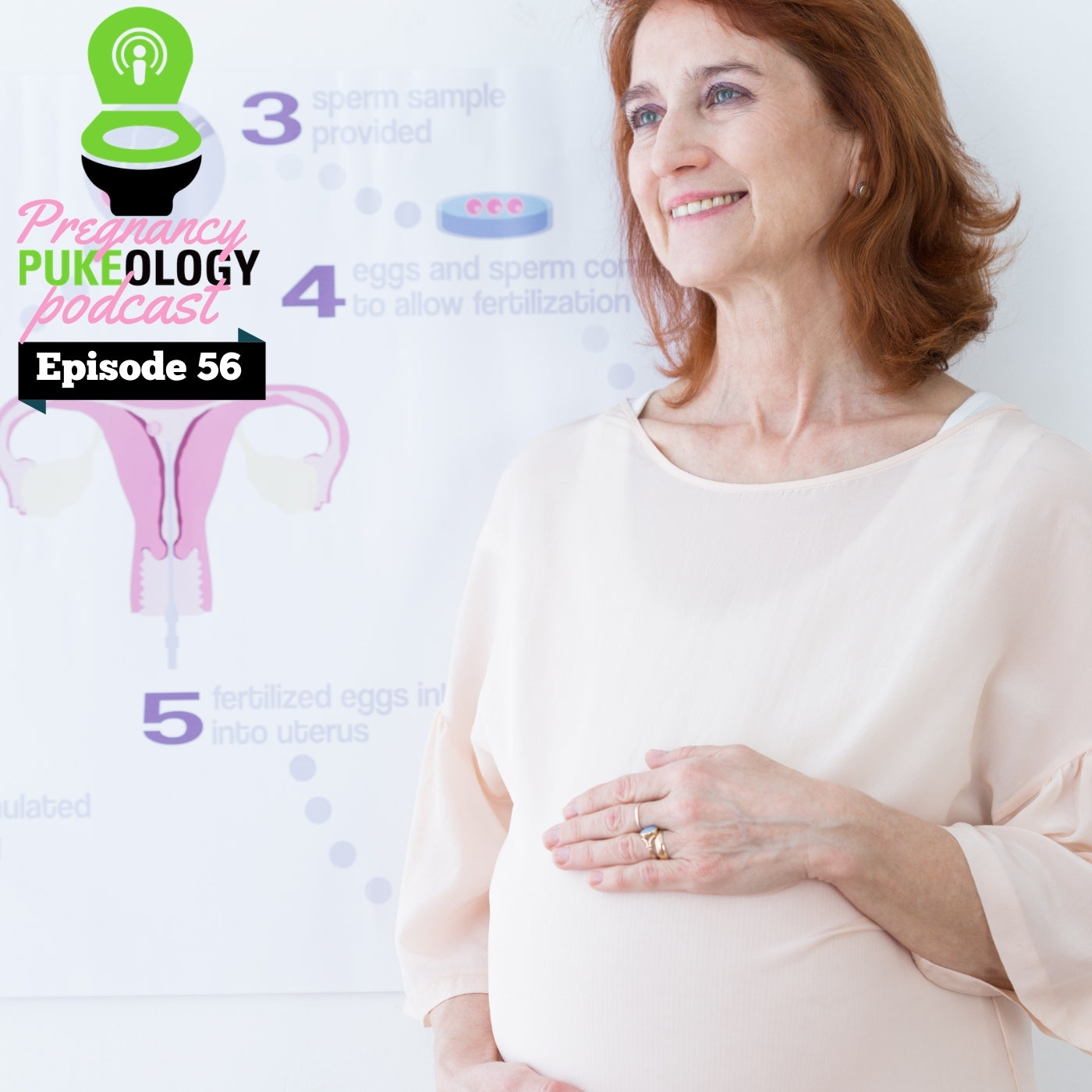
What does genetic testing show during pregnancy?
Knowing your health and that of your baby while still growing in your womb is a good thing. You feel reassured when your doctor informs you that your baby has no genetic abnormalities. And in case any abnormalities are detected, the doctors will be able to intervene before the condition get worse. Want to read more about advanced maternal age in pregnancy and what genetic testing are currently available but don't have time, listen it to it here.
Some people use genetic testing BEFORE becoming pregnant to find out whether...
They have hereditary genes that could be life threating to the unborn child, or if the baby will genetically become viable before invitro-fertilization and implanted into the mother's womb. When doing genome screening, parents also have a choice as to what sex of the baby they prefer. Unlike science fiction books, you can not genetically make a blonde hair blue eyed baby. There are things called jumping genes that attribute to hair and eye color. So just because mom and dad have brown eyes, doesn't mean little baby boy won't have blue eyes, especially if one of the grandparents has light eyes.
In utero genetic testing
Genetic tests are needed to make a diagnosis. You will give blood or body tissues to be analyzed.
The following are reasons why your doctor may recommend genetic testing.
- If you are over 34 years old. The risk of having a baby with chromosomal abnormalities such as trisomy (having an extra chromosome) is high if you are older than 34 years.
Your child is also at a higher risk of developing a single gene defect if conceive with an older partner.
Advanced maternal age complications
Most healthy women who become pregnant after 35 go on to have healthy babies, but there are a few increased risks you should be aware of:
- Infertility: According to the CDC, about 12 percent of women age 15 to 44 in the United States have difficulty getting pregnant or carrying a pregnancy to term. After 35, infertility starts to become an issue in this population of advanced maternal aged women. Infertility rates in women rise significantly after the age of 35 because they have fewer healthy eggs and their bodies are less able to release the healthy eggs.
- Multiple births: Infertility issues arising from advanced age couples can lead prospective parents to seek infertility treatments. Infertility treatments significantly increase the possibility for multiples at child birth. The complications with multiples are because more than half of all births of multiples are premature, women using fertility medications need to be monitored closely throughout their pregnancies.
- Chromosomal abnormalities: There is a small increase in chromosomal abnormalities, like Down syndrome, in pregnancies where the moms are older than 35 at the time of birth. The March of Dimes reports the chance of having a baby with Down syndrome increases from 1 in 1,250 births at age 25, to 1 in 400 births at 35. You can choose various screening tests that may diagnose some of these chromosomal abnormalities early in the pregnancy that are discussed further in this blog.
- Fertility gradually declines in a woman's thirties, particularly after age 35. Each month that she tries, a healthy, fertile 30-year-old woman has a 20% chance of getting pregnant.

DNA testing for fetus
Your BGYN might recommend you undergo additional screening if you have one of the following:
- Abnormal prenatal screening test result. If you receive an abnormal prenatal screening test result, a genetic test might be necessary to help detect the genetic condition.
- Prior history of inherited illness. Genetic testing can help you plan on whether to start a family when you have a close relative or a partner with inherited illness.
Remember some people might be a carrier of a genetic disorder – have genetic defects but don’t show clinical signs and symptoms. In this situation, your baby will only show symptoms if he/she inherits two copies of defective genes (one from each parent).
- Have a child with a serious birth defect. While having a baby with a genetic defect doesn’t always mean you give birth to a child with a genetic problem, it is important to do a genetic test. Some of the birth defects are not inherited meaning you will have a baby in your next pregnancy. Sometimes the cause could be a spontaneous error in the cells of your child and not your cells or your partner.
- Having miscarriages. Chromosomal abnormalities in your fetus can lead to pregnancy loss. Having more than 2 miscarriages might point to a genetic problem.
- Having stillbirth with visible signs of a genetic condition. Genetic testing is recommended to help identify any genetic problems that could have caused physical problems.

Genetic Testing in Fetus
Genetic tests during pregnancy are classified into two broad groups, screening tests and diagnostic.
Your doctor will recommend a screening test to help determine whether you are at risk of having a baby with a genetic illness.
Diagnostic Genetic Tests
Diagnostic tests can be done if you have abnormal screening test results to tell you whether the fetus has a defect.
It is important to seek counseling services to help you decide when and what genetic you should do when pregnant.
Screening Genetic Tests
These tests are best done during the first trimester and early second trimester. The result is unreliable when these tests are done beyond 19 weeks of pregnancy.
What does genetic testing show?
Early on in your pregnancy, your first trimester, you will see these tests performed and because they are screenings they do no harm to the unborn baby.
Screening Tests
The first trimester combined screening test.
You give a blood sample at 10-12 weeks gestation. An ultrasound will then be done when you are 11-13 weeks pregnant.
The first trimester combined screening helps you find out whether you are at risk of giving birth to a baby with Down syndrome (trisomy 21) or trisomy 18. But the test does not diagnose these disorders.
If the test shows an abnormal result, you will have to do a diagnostic test (chorionic villus sampling or amniocentesis).
If you are in your first trimester and notice that your getting morning sickness, you don't have to suffer! NoMo Nausea Band is the first and only essential oil infused pressure technology bracelet that instantly stops your worst pregnancy sickness in seconds. Buy one today to start feeling like yourself.


Maternal serum screening
You will be required to give a blood sample when you are 15 to 20 weeks pregnant.
This test not only shows your risk of having a baby with Down syndrome and trisomy 18 but also neural tube defects like spina bifida.
Again you will have to do a diagnostic test to help you know the genetic illness when maternal serum screening test results are abnormal.
Non-invasive prenatal test
This test is done after 10 weeks of pregnancy to screen for possible chromosomal disorders such as Down syndrome. Further testing is done when the NIPT result is abnormal to diagnose Down syndrome. The test is done if you are at a high risk of giving birth to a baby with a chromosomal abnormality. Your doctor might recommend this test if you previously gave birth to a child with a chromosomal abnormality when you will be above 35 years at the time of giving birth.
Your doctor will ask you to provide a blood sample. The sample is sent to the lab to find out whether there is fetal DNA linked to a chromosomal abnormality. The sex of your baby can also be accurately determined during the process.
Be sure to let the doctor know if you don’t want to find out the sex of the baby before testing is done.
Screening tests are non-invasive meaning they do not pose any risk to your growing baby.
Diagnostic Tests
Diagnostic genetic testing during pregnancy have various forms and functions. See below.
Chorionic Villus Sampling
Chronic villus sampling (CVS) is a genetic test done to test for Down syndrome. This test is done when you are 10th or 12th weeks pregnant. And you should also be over 35 years or have a positive family history of chromosome abnormality. The sample you’ll provide is the chorionic villus – a placental tissue. The test can also be used to accurately determine the sex of your baby.
Amniocentesis
This test is done when your pregnancy is between 15 to 20 weeks. Your doctor will request an amniotic fluid sample which is obtained by inserting a hollow needle into your abdomen.
Amniotic fluid is analyzed to detect any genetic illness your baby could be having. Also, amniocentesis can help determine the sex of your baby and lung maturation.
Diagnostic tests are invasive. During the test, you may bleed, have cramps, leaking amniotic fluid, go into labor (preterm labor) or experience a miscarriage.
Healthy choices for healthy pregnancies in women over 35
The wonderful aging process affects us all, as we women face a greater risk of gaining weight, developing hypertension, diabetes, thyroid disease, or other health problems that can make conceiving and pregnancy more difficult.
How many eggs does a woman have at 35?
A woman at the age of thirty often has around 100,000-150,000 eggs in reserve. By 35, that number is likely around 80,000. Late into the thirties, that number could be as low as 25,000, 10,000, or fewer.
Is there a test to see how many eggs you have left?
Doctors do have tests to measure egg count. There are two ways to measure egg count:
1. Antral Follicle Count
This test measures your ovarian reserve. Antral follicle count is a transvaginal ultrasound study, meaning a healthcare provider places a ultrasound probe inside the vagina to get a picture. This is performed in the early phase of your menstrual cycle, in which your physician visually counts the number of egg-containing follicles that are developing on both of your ovaries. Giving an actual egg count you have for the month.
2. AMH (anti-Müllerian hormone) test
This test is a obtained from a woman's blood. The level of AMH in the blood can help doctors estimate the total number of follicles inside the ovaries, and therefore a woman's total egg count.

How to increase fertility in women over 35?
Here are some healthy choices you can make now to increase your chance of having the healthiest pregnancy possible:
- Maintain a healthy diet. Eat plenty of fresh fruits and vegetables.
- Exercise regularly. Recent studies have shown that women who exercise 30 minutes a day most days have a greater chance of being fertile than women who do not.
- Take 0.4 mg of folic acid per day starting two to three months before you conceive.
- Stay away from drugs and alcohol.
- Don’t smoke.
- Ask your doctor before starting any new medications.
- Talk to your physician before trying to conceive to discuss any problems you might face.
By committing to a healthy lifestyle, you can ensure the healthiest pregnancy and birth possible for you and your baby. You can get up-to-date information about all things pregnant from our physician Dr. Jacqueline Darna N.M.D on Pregnancy Pukeology Podcast. If you’re thinking of starting a family and are 35 or older, request an appointment with your physician to go over any unique challenges you might be facing and create a pregnancy plan that’s right for you. 

